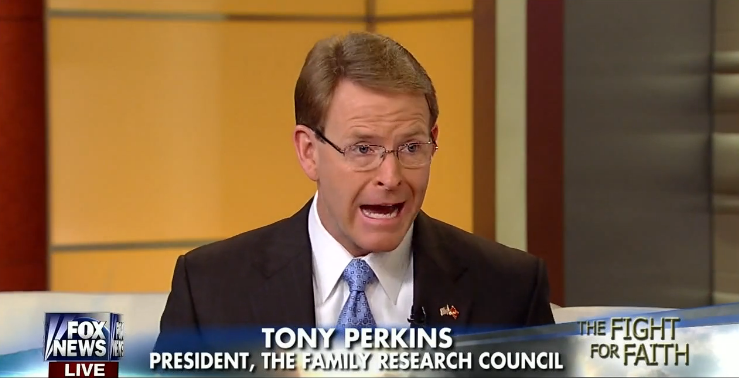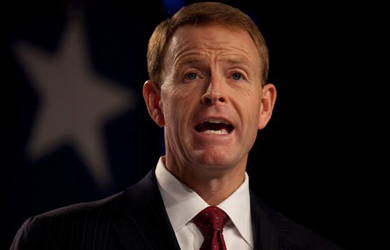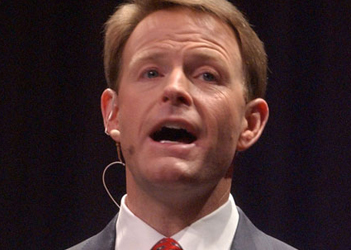In recent weeks, the Religious Right has caught wind of a “pastoral letter” from Planned Parenthood’s clergy advocacy group that has been posted on the organization’s website for several months and states, “The decision about abortion is a matter between a woman, her conscience, and/or her God, and that those close to her should offer support in any way they can.”
Upon learning about the letter, the Alliance Defending Freedom offered to send a copy of the Bible to every Planned Parenthood clinic, Robert Jeffress called the letter “ridiculous” and WorldNetDaily blasted “Planned Parenthood’s Pastoral Letter from Hell.”
Family Research Council President Tony Perkins also weighed in in an email to members, writing, “Women are used to Planned Parenthood preying on them — but praying on them? That’s a new approach altogether.”
In a statement to Time yesterday, members of the Planned Parenthood clergy board responded to Perkins, saying, “Too often, the voices of negative religious discourse around abortion are those that loudly proclaim their teachings are the only ones that are valid. They try to shame and judge women who are making deeply personal and often complex decisions about their pregnancies.”
To which Perkins, of course, responded by implying that Christians who support reproductive rights are just “supposed” Christians, who “do not fully understand” the issue of abortion rights.
This line of argument is not a huge surprise coming from Perkins, who recently claimed that pro-gay clergy don’t have the same religious rights as conservatives because religious liberty is a freedom that’s based on orthodox religious viewpoints.”
Three clergy board members—the Board’s chair, Reform Jewish Rabbi Jon Adland of Canton, Ohio; vice-chair Rev. Susan Russell, of All Saints Episcopal in Pasadena, Calif.; and Reform Jewish Rabbi Dennis Ross of Concerned Clergy for Choice in Albany, N.Y.—responded to Perkins’ criticism against their work in a statement to TIME. “Too often, the voices of negative religious discourse around abortion are those that loudly proclaim their teachings are the only ones that are valid,” they say. “They try to shame and judge women who are making deeply personal and often complex decisions about their pregnancies.”
For these Christian and Jewish leaders, their efforts far from spiritualize abortion–they defend a woman’s religious liberty. “As clergy members, we work every day to make clear that everyone is entitled to follow their own conscience and religious beliefs; what they don’t have the right to do is impose those beliefs on everyone else,” they say.
As ministers, they also believe they also have a spiritual responsibility to care for and counsel families in their communities. “As faith leaders, we recognize that women need to be supported and receive compassionate care while making deeply personal decisions based on faith and conscience,” they say. “It is important that women know that there are people of faith who respect a woman’s ability to make these deeply personal decisions in consultation with her family, her doctor, and her faith.”
…
Perkins, however, suggests that Christianity and Planned Parenthood are incompatible. “A straightforward reading of the Bible shows that since the beginning God held human life to be sacred, and values human life, no matter the stage,” Perkins says. “I imagine that Christians, supposed or true, who support Planned Parenthood either do not fully understand what abortion is, what its physical and emotional consequences are or what Planned Parenthood as an organization actually stands for and advocates.”






